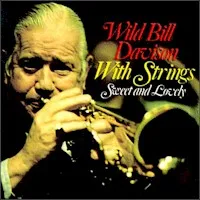Size: 103,0+107,5 MB
Time: 44:17+46:10
File: MP3 @ 320K/s
Released: 2017
Styles: Jazz Vocals, Modern Jazz
Art: Front
CD 1:
01. Fly Me To The Moon (4:45)
02. Tico Tico No Fuba (5:13)
03. Where Flamingos Fly (5:38)
04. A Nightingale Sang In Berkeley Square (7:20)
05. Bye Bye Blackbird (5:50)
06. Skylark (3:56)
07. Migration (6:51)
08. Nightbird (4:41)
CD 2:
01. The Benu Bird (Feat. Vindla String Quartet) (3:43)
02. Everyone Sang (Feat. Vindla String Quartet) (4:29)
03. Chayka (Feat. Vindla String Quartet) (5:07)
04. The Phoenix (Feat. Vindla String Quartet) (4:11)
05. The Kite (Feat. Vindla String Quartet) (4:16)
06. Like A Sick Eagle (Feat. Vindla String Quartet) (4:24)
07. The Electra (Feat. Vindla String Quartet) (5:51)
08. Murmuration (Feat. Vindla String Quartet) (9:29)
09. Motacilla Alba (Feat. Vindla String Quartet) (4:36)
There are very few musicians who dare to expand their artistic vision with every new project as Swedish vocalist-songwriter-composer Lina Nyberg. Aerials, is the her second installment in a trilogy of albums that offers her unique perspective about the world, the elements and the music itself. Nyberg began the trilogy with the double album The Sirenades (Hoob, 2014), that featured her songs composed for her quintet and the Norrbotten Big Band, sketching poetic images of cyber-seas, monsters and waves. On Aerials Nyberg sings of avians—real and mythological birds—and raising her glance a bit higher and adding images of pilots, winds and astronauts. The aerial perspective gives Nyberg a musical look on our daily dilemmas, lives, relationships and our fragile planet from a distance. A highly personal perspective that may be more objective but also filled with solicitude.
Aerials is again a double album. Its first part, Space, was recorded live with Nyberg band—pianist Cecilia Persson, guitarist David Stackenäs, bassist Josef Kallerdahl and drummer Peter Danemo, at Kapellet (The Chapel) in Stockholm. This album feature looser, highly personal adaptations of jazz standards that relate to birds and images of aviation as "Fly Me to the Moon," "Where Flamingos Fly" and "Bye Bye Blackbird." Nyberg delivers these timeless standards with amused-playful elegance, commanding ideas of a clever storyteller but also a reserved sentimentality, leaving a lot of room for improvisations by her quintet musicians. Nyberg ongoing collaboration for the last decade with Stackenäs, known mostly for his free-improvised meetings with such innovativors as saxophonists Mats Gustafsson and Martin Küchen, or pianist Sten Sandell, cements the open approach to these songs. This approach is best demonstrated on their moving duo on "Skylark" or the the quintet searching, free arrangement of "Migration," with lyrics partly inspired by a poem "Motacilla Alba" by Joan Walsh Anglund, somehow summarizing Nyberg aesthetics: "I don't sing because i have an answer, I sing because i have a song."
The second part, titled as the album, fulfills a lifelong, ambitious dream of Nyberg to compose music for a string quartet. She wrote few segments for a string quartet featured on one of So Many Stars (Prophone, 1996) but on that album the string quartet played side by side with jazz musicians. Now, when asked to prepare a commissioned work by the Swedish National Radio music channel (P2) Nyberg wrote music and lyrics for her as a vocalist and the versatile Malmö-based, all-female Vindla String Quartet. The nine, highly-notated original compositions, only five with lyrics, blend beautifully Nyberg vision of contemporary music with a touch of rhythmic, jazz songs.
Nyberg arrangement of Siegfried Sassoon poem "Everyone Sang" is simply compelling—full of inventive ideas, delivering its profound, suggestive poetic images with irresistible commanding elegance. Her tribute to Soviet pioneer cosmonaut Valentina "Chayka" Tereshkova if filled with touching images of innocence and wonder of one who observed Earth from space. Her arrangement of Charles Ives "Like a Sick Eagle" (with lines taken from John Keats' sonnet "On Seeing the Elgin Marbles") is faithful for its fragile, compassionate of spirit, and her homage to pilot Amelia Earhart, "The Electra," after Earhart plane name, "sings away" any fear of flying. The concluding reprisal of the poem ""Motacilla Alba," with the Cappella Catharinae Choir charges the poems lines: "I fly and I cry for the brothers / At flight from war and terror" with an urgent, action-calling theme.
Masterful, imaginative and inspiring. ~Eyal Hareuveni
Personnel: Lina Nyberg vocals; Cecilia Persson: piano (CD 1); David Stackenäs: guitar (CD 1); Josef Kallerdahl: double bass, electric bass (CD 1); Peter Danemo: drums, percussion, live electronics (CD 1); Vindla String Quartet (Caroline Karpinska: violin; Maria Bergström: violin; Elina Nygren: viola; Gerda Holmquist cello) (CD 1: 1, 7, CD 2); Cappella Catharinae Choir (CD 1:7, CD 2: 9).
Aerial CD 1
Aerial CD 2




















